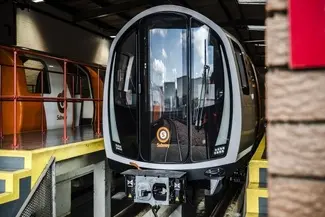British Ports Told to Develop Air Quality Plans by 2019
The UK Government has released the Clean Air Strategy 2018, requiring all major ports in England to develop air quality plans within the next year.

The UK Government has released the Clean Air Strategy 2018, requiring all major ports in England to develop air quality plans within the next year.
These emissions reduction plans, to be submitted by May 2019, will be reviewed periodically to establish if the measures are effective or whether government action is required, the government said. The strategies need to outline measures to reduce emissions across the port estate including ship and shore activities.
According to the strategy, the UK government plans to cut air pollution from all forms of transport, and in 2018, it will set out “ambitious plans to drive down emissions from shipping and aviation.”
Among measures being introduced are ending the sale of conventional petrol and diesel cars and vans, as well as the complete phasing out of diesel-only trains by 2040.
“Ports and shipping are part of the solution, not the problem and it is disappointing that the government has missed the opportunity to promote shipping as the cleanest way to move freight,”Mark Simmonds, Policy Manager at the British Ports Association, said.
“In comparison with other transport modes shipping is an efficient and environmentally sustainable option. Utilizing the UK’s hundreds of ports in supporting more coastal shipping has the potential to take thousands of lorries off of UK roads.”
Furthermore, the association pointed to the lack of credible evidence behind the strategy. Namely, the government said that the international shipping emissions have a significant impact on air quality in the UK due to shipping lanes and engine operation while at UK ports.
However, the association noted that it had been engaging with the government on air quality for some time but is yet to see “credible evidence set in proper context.”
The association claims that the government had based some of its assumptions on shipping and port emissions on reports where the methodology had significant limitations, such as substantial guesswork around vessels’ fuel type and sulphur content and assumptions on vessels’ engines.
There are also significant question marks around source apportionment in emission monitoring, the association added.
“This is a tight deadline, but many major ports will already be taking action on air quality, monitoring the sources or producing plans of action. We are pleased that government has recognized that there is not a one-size-fits-all solution to this. Measuring the sources of emissions is always difficult and government should recognize that ports are often centres of major industry and logistics chains and do not usually have direct control over nearby emissions sources,” Simmonds concluded.
Source:worldmaritimenews















![AIRBUS A380 [MORE THAN 600 PASSENGER’S CAPACITY PLANE]](https://cdn.tinn.ir/thumbnail/4jCp4EQvCU0b/IjHVrSYQrIAqIzXuTzADR7qLYX4idQT4nfq__26E5SCUPLMqfhWkWajvuO9Wfq1ql1TjV4dhkrHliNQU82kMpo2NNftT_NGEwHc9KXtN_rk731bmifa2IQ,,/airbus-a380-structure1.jpg)

Send Comment